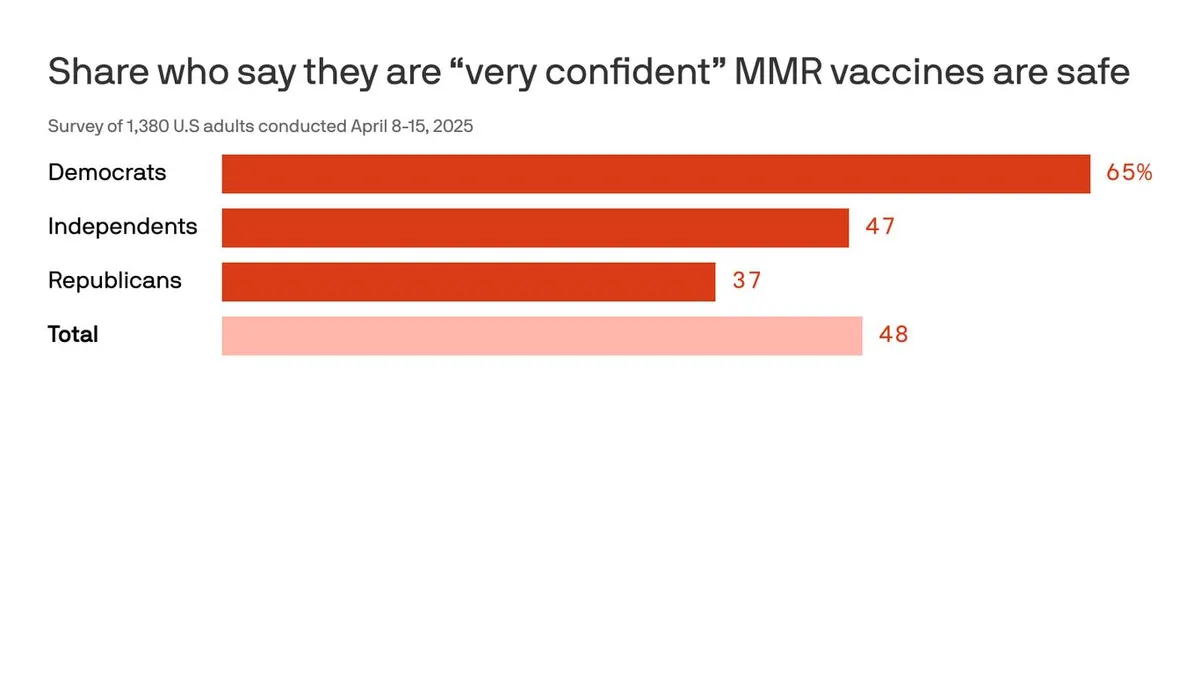
The resurgence of measles cases in the United States has sparked widespread concern, not only due to the disease itself but also because of the misinformation that is proliferating alongside it. Recent polls indicate that many Americans are confused about the measles vaccine and the facts surrounding the outbreak, highlighting a significant public health challenge.
As the measles outbreak continues to unfold, a staggering number of individuals are struggling to discern truth from fiction regarding vaccinations. A recent survey by Axios reveals that misinformation about the measles vaccine is not just prevalent; it's becoming increasingly accepted in various circles. This growing uncertainty is concerning for health officials who emphasize the importance of vaccination in controlling the spread of this highly contagious virus.
According to findings from the KFF Tracking Poll on Health Information and Trust, a significant percentage of Americans express confusion regarding the measles vaccine. Many are unsure what sources to trust, leading to a climate where misinformation can thrive. This uncertainty is further compounded by the rapid dissemination of false information through social media platforms, which often prioritize engagement over factual accuracy.
To combat the tide of measles misinformation, public health experts stress the importance of relying on credible sources for information. Health organizations, such as the CDC and WHO, are working diligently to provide accurate and accessible data concerning the measles vaccine and its efficacy. Engaging with these trusted sources can help mitigate the spread of falsehoods and encourage vaccination as a critical preventive measure.
Efforts to address measles misinformation must focus on education and outreach. Community leaders, healthcare providers, and educators play a vital role in informing the public about the safety and necessity of the measles vaccine. By fostering open dialogues and providing clear, fact-based information, we can build trust and encourage informed decision-making among individuals and families.
As the measles outbreak continues, the need to address misinformation has never been more critical. By prioritizing education and promoting trusted health information, we can combat the spread of this disease and protect public health. It is vital for everyone to stay informed and to advocate for vaccination, ensuring that we do not let misinformation jeopardize our collective well-being.